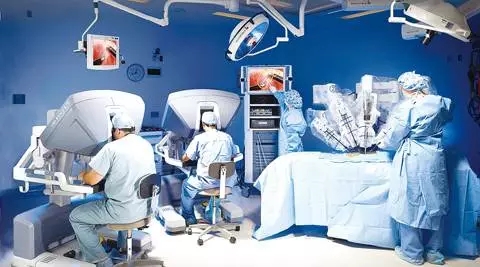Today, health care focuses on chronic diseases such as heart disease, diabetes, and asthma. Because the treatment of chronic diseases often takes a long time, and many visits to medical services. But in a modern society that is pursuing efficiency, “former medical service forms will not work,†Krishnapuram said. “We need to dramatically improve patients' medical experience. We can shift more of the treatment from the doctor’s office to the clinic and even to the patient’s home. ."
Unlike traditional labor-intensive healthcare, emerging medical models are knowledge-driven and data-intensive. Therefore, there will be a large number of new medical service models in the future that rely on a new generation of user-friendly, real-time big data analytics artificial intelligence/machine learning tools.
According to Krishnapuram, the application of future artificial intelligence/machine learning tools and technologies will bring about changes in the following five medical fields that will benefit people:

Population management: Identify risks, identify whether patients are at risk, and identify measures that may reduce risk.
Care Management: Design personalized care plans for each patient to narrow the gap in care.
Self-management of patients: Support and ability to personalize self-management treatment plans for patients, monitor patient health in real time, adjust drug doses, and provide incentives for beneficial health behavior changes.
System Design: Optimizing medical processes – everything from basic treatment processes to medical insurance, through careful data analysis, reduces costs while improving care outcomes and quality.
Decision support: Helps doctors and patients to choose the appropriate drug dose based on the latest test or monitoring data, assists radiologists in identifying diseases such as cancer, analyzes medical literature, and suggests surgical plans that will produce the best results.
Applying artificial intelligence/machine learning strategies in these five medical areas is essential for creating large-scale, cost-effective, personalized, patient-centered medical clinical systems. In this report, O'REILLY went deep into these areas and conducted interviews with pioneer experts who combined artificial intelligence and medical care. The door compiles the opinions of these experts and hopes to share with you the cutting-edge applications and concepts of artificial intelligence in the medical field. Enjoy~
Artificial Intelligence/Machine Learning: The Benefits of Millions of Patients
Artificial intelligence and machine learning have great potential in the field of health care. In addition to the familiar level of cancer treatment and diagnosis, AI/ML can also be applied to many medical situations: such as fetal monitoring, early detection of sepsis, and risk of combination drugs. Identification and rehospitalization forecasts and more.

“Medical and biological sciences are very complicated. We want to achieve a certain level of professionalism, which often requires long-term learning and repeated practice.†said Dr. Russ Altman, head of biomedical informatics at Stanford University. “Learning and discovery of knowledge In terms of capabilities, computers can reach maturity levels faster than humans. This is very exciting."
Altman believes that machine learning and neural networks are very useful when discovering the laws of large biological databases. Currently, the most promising areas of machine learning in medical research include:
"omics data" (genomics, gene transcriptomics, proteomics, metabolomics, etc.)
